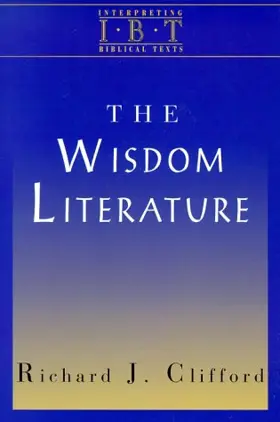

The Wisdom Literature
in Interpreting Biblical Texts
Pages
181 pages
Publisher
Abingdon Press
Published
8/1/1998
ISBN-13
9780687008469
Reviews
This text offers beginning students an authoritative and appealing introduction to Proverbs, Job, Qoheleth, Sirach, Wisdom, and Song of Songs. Clifford begins with a survey of ancient Near Eastern sapiential writings, illustrated with excerpts from Mesopotamian texts (Sumerian proverbs, the Instruction of Shuruppak, and the “Counsels of Wisdom”), Egyptian Instructions (Ptahhotep and Amenemope), and “Canaanite” sources (chiefly Ahiqar). He also explains the scribal social location of the Mesopotamian and Egyptian literatures. Clifford’s treatment of Proverbs stresses that the instruction and sayings genres are meant to train the reader in discernment rather than simply to convey information. He departs at times from the NRSV (the translation of reference for this volume), to give his own rendering of selected sayings, intended to bring out the wordplay and wit of the Hebrew Proverbs. For example, Prov 26:9: “A thorn attaches to the hand of a drunkard/ and a proverb to the mouth of a fool” (p. 66; but the reference to Prov 26:9 is obscured by typographical error). Clifford’s discussion of personified Wisdom in Proverbs downplays theories of descent from a Canaanite goddess of wisdom or from Egyptian Maat. He emphasizes instead Wisdom’s role in the biblical text as a foil to Woman Folly, and to the foreign women and seductress figures of Proverbs 1-9. Turning to Job, Clifford first describes the book’s ancient Near Eastern antecedents, including the Egyptian “Dispute Between a Man and His Ba,” the “Sumerian Job,” “Ludlul bel nemeqi,” and the “Babylonian Theodicy.
[Full Review]
